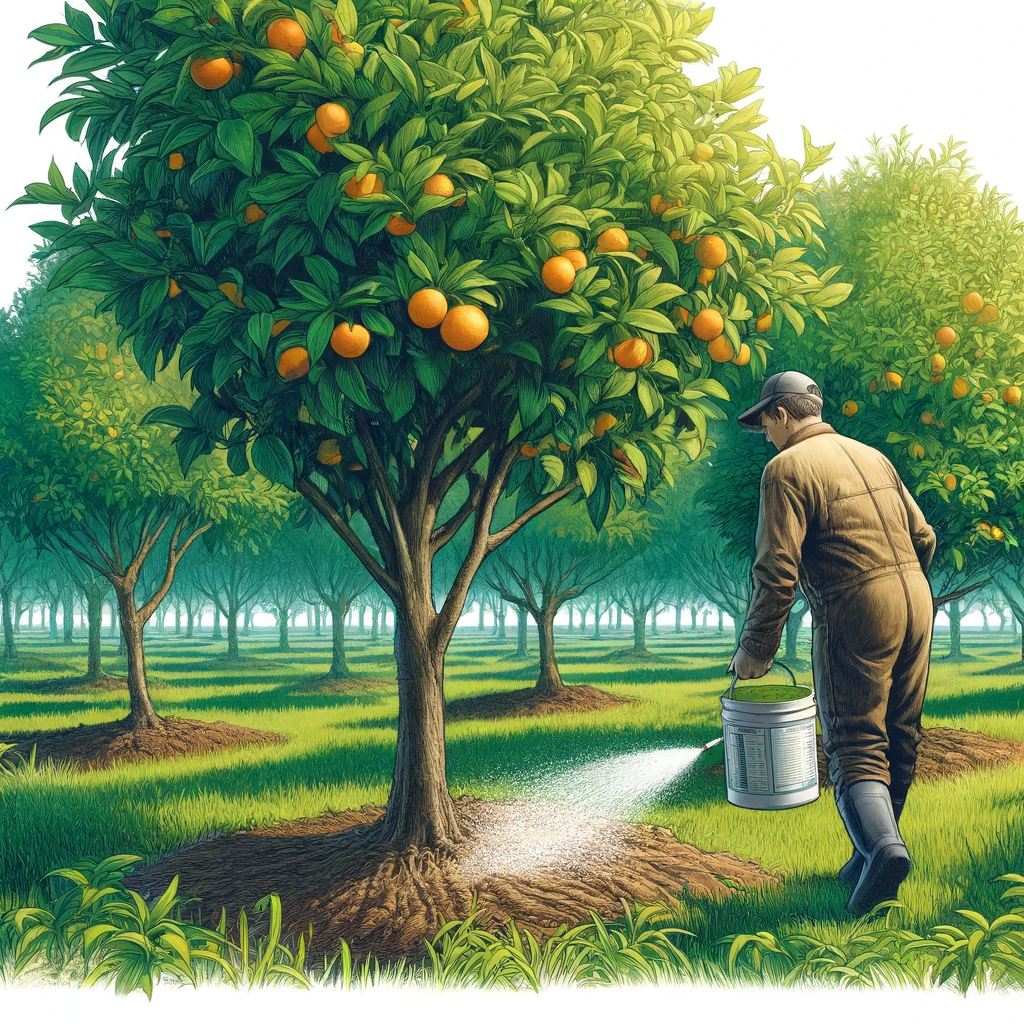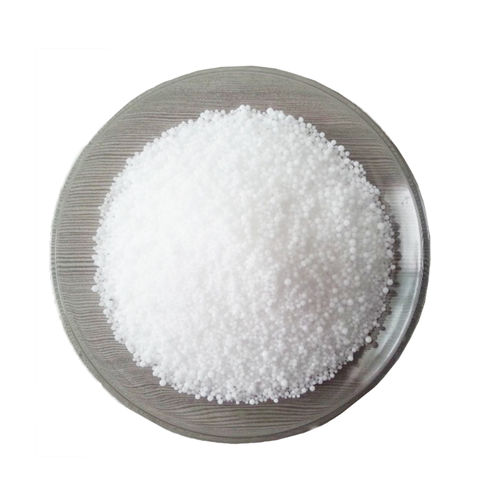Introduction:Understanding the Importance of Organic Citrus Fertilizer
Citrus trees are loved for their beautiful flowers and abundant fruits by farmers all over the world. While growing such trees can be challenging, proper nutrient management and soil care are key factors in facilitating their growth. It is therefore important to choose a suitable fertilizer, particularly when aiming for sustainable and sound growth.
Over the past few years, organic citrus fertilizers have become popular with growers who want to increase their production as well as protect the environment. Conversely, synthetic fertilisers act quickly on plants but are harmful to soils and ecosystems while organic fertilizers take a soft approach towards citrus cultivation.
Organic citrus fertilizers are made from naturally occurring materials like animal manure, compost, bone meal and other plant residues that provide diverse sets of essential nutrients in ways that mirror natural soil processes. Not only do they offer nourishment but also enhance the soil’s structure and water retention capacity as well as increase biodiversity of soil organisms.
At this time when agricultural sustainability is paramount, switching to organic fertilizer is very timely. By opting for organic fertilizers, citrus farmers contribute to environmental conservation through responsible farming rather than just feeding their trees. Consequently, it keeps land fertile enough for re-cultivation; maintains ecological balance; reduces the carbon footprint of farming.
Upon further examination into why using organic citrus fertilizer provides immediate health benefits to the citrus plants and contributes greatly to long-term sustainability in agriculture becomes clearer. The purpose of this introduction is therefore setting ground for an in-depth discussion on how use of organic fertilizers can support effective and sustainable growth of citrus fruits.
What Makes Organic Citrus Fertilizer Unique?
When it comes to taking care of citrus trees, the type of fertilizer you use can have a huge impact on both the plants and the environment. Organic citrus fertilizer is unique in terms of its constituents and sustainability benefits that set it apart from synthetic ones.
Comparison of Organic vs. Synthetic Fertilizers
Organic fertilizers are obtained from natural sources like decayed plant and animal matter, which inherently contain nutrients in more complex forms that decompose and get released into the soil over time. In contrast, synthetic fertilizers often arise from chemical processes and bring nutrients in a more soluble form, quickly taken up by plants but also prone to leaching or causing nutrient loading.
Key Components of Organic Citrus Fertilizers
Some of the best-performing organic fertilizers for citrus trees include:
- Compost: Compost is rich in organic matter, thus feeding trees while also improving soil structure and moisture-holding capacity.
- Bone Meal: An excellent source of phosphorus, bone meal supports root growth as well as enhances fruit quality.
- Blood Meal: Contains high quantities of nitrogen, hence useful during the initial stages of development for abundant leaf and stem growth.
- Fish Emulsion: Supplies balanced amounts of nitrogen, phosphorus, and potassium, together with microelements important for citrus health.
These ingredients are minimally processed, if at all, so that their inherent advantages remain untouched, thereby ensuring they serve not only as a supply source for nutrients but also improve general soil health by encouraging beneficial microbial activity.
The Slow-Release Nature of Organic Nutrients
One great feature of organic fertilizers used on citrus fruits is how slowly they release their content. This slow-release aspect ensures that nutrients are provided continuously, according to the natural rhythm through which citruses grow. It curtails risks associated with nutrient leaching and reduces the frequency of application, making it economical and eco-friendly in the long term.
Dr. Susan Barker, a specialist in soil health, cites the significance of this attribute by saying, “Organic fertilizers, with their slow-release nutrients, not only prevent the shock of overfeeding, which can damage the plants, but also contribute to sustained soil fertility, fostering a healthy growing environment for citrus trees.”
These distinct benefits demonstrate why organic citrus fertilizer is preferred by farmers who are committed to sustainable agriculture and the health of their citrus groves. Increasingly more citrus growers are adopting organic approaches as part of their cultivation practices because they possess natural qualities that enhance the slow release of nutrients that help soils thrive.

How to Effectively Utilize Organic Fertilizer in Citrus Fruit Trees
To derive the maximum benefits that citrus trees can get from organic fertilizer, an understanding of the proper application practices is important. The steps below will help ensure your citrus plants receive optimum nutrition from organic fertilizers.
Application Timing and Techniques
The timing of applying the fertilizer is essential for success in citrus growth. The best times to apply organic citrus fertilizers are:
- Early Spring: Just before the growing season starts, to prepare trees for bud break and development of new leaves.
- Late Summer: A good time to support fruit set and development, which is critical for ensuring good yields.
When applying fertilizer, ensure that nutrients are accessible by the tree roots but avoid contact with the trunk that may cause injury. Spread fertilizer evenly under the entire canopy of the tree, extending a little beyond the drip line, then lightly incorporate it into the top few inches of soil. This process helps prevent nutrient runoff and also aids in the efficient delivery of nutrients through fertilizers to the root systems.
Dosage and Composition
The right composition as well as dosage of organic citrus fertilizer should be chosen since different citrus fruit crops have different needs:
- Young Trees: Require a significant amount of nitrogen to promote growth.
- Mature Trees: Need a balanced mix of nitrogen, phosphorus, and potassium for good fruit production and general health.
The recommended dosage varies depending on the product but typically about 1 pound of organic fertilizer per inch of trunk diameter measured at chest height is a good rule of thumb. Always refer to the manufacturer’s instructions for specifics regarding any given product.
Common Mistakes to Avoid
When using organic fertilizer on your citrus trees there are several common mistakes that can undermine their health:
- Over-Fertilizing: Can result in excess foliage growth at the expense of fruiting.
- Under-Fertilizing: May lead to poor plant vigor resulting in low yield potential.
- Improper Timing: Applying too late in the season can induce new growth that will not have had adequate time to harden off before cold weather sets in, causing damage from frost.
“Periodic soil testing is a must for determining, precisely, your soil and tree nutrient requirements. This enables planning of fertilization strategies which ensure optimized productivity and health of your trees while preserving environmental resources,” advised Dr. Lisa Hamilton, a citrus agronomist.
By following these guidelines, you can adjust practices to suit specific conditions within your citrus orchard, thus maximizing the effectiveness of organic citrus fertilizer for an increased healthy harvest.
Real-Life Success Stories
The benefits of using organic citrus fertilizer are not just theoretical; many citrus growers have witnessed significant improvements in both crop yield and plant health after switching to organic methods. Here are some real-life success stories that highlight the positive impact of organic citrus fertilizer on citrus orchards.
Florida Citrus Orchard
- Overview: A mid-sized citrus orchard in Florida switched to organic fertilizer as part of a move to more sustainable farming practices.
- Implementation: The orchard began using a blend of composted manure and bone meal, applying it twice a year—spring and late summer.
- Results: Over the course of three years, the orchard saw a 25% increase in yield and a noticeable improvement in fruit quality. The soil tests also indicated enhanced microbial activity and higher organic matter content.
- Key Takeaway: Consistent use of organic fertilizers can not only improve yield and quality of citrus fruits but also enhance healthier soil for long-term sustainability.
California Citrus Grower
- Overview: A family-owned citrus farm in California adopted organic fertilizers to address soil depletion and reduce chemical runoff.
- Implementation: They utilized a custom mix of fish emulsion, blood meal, and green compost tailored to their specific soil needs.
- Results: The farm experienced robust tree growth, healthier fruit production, and reduced disease incidence. Public response was overwhelmingly positive, leading to higher demand for their organic citrus products.
- Key Takeaway: Organic fertilizer compositions can be tailored to specific soils and plant requirements which will produce better fruits with sustainable growth.
Testimonial from Texas Citrus Farmer
- Overview: A Texan farmer who grows oranges had been struggling with poor soil fertility resulting in low productivity levels.
- Implementation: After seeking advice from an agronomist, the farmer began using micro-nutrient fortified organic fertilizers specifically made for use on orange trees.
- Results: The changes were visible within that first growing season as the fruit were bigger while the trees looked healthier.
- Testimonial: “Our orchard’s switch to organic fertilizer was the greatest choice we ever made, with immediate benefits to our trees and the healthiest citrus that has ever come from these groves,” said the farmer.
These stories are drawn from different parts of America indicating that organic fertilizers can considerably enhance the welfare and productivity of citrus plantations irrespective of regional weather conditions or soil types. This not only raises their crop yields but also ensures environmental friendliness on their part, making way for an agricultural future that is sustainable through organic practices.
Future Trends in Citrus Fertilization
As the agricultural industry keeps evolving, the usage of organic citrus fertilizers is becoming increasingly central to sustainable practices in citrus farming. In prospect, there are some forthcoming developments and trends that can determine the future of citrus fertilization.
Advancements in Organic Fertilization Techniques
New scientific findings are shaping how organic citrus fertilizers are manufactured and used:
- Biologically Enhanced Fertilizers: Organic fertilizers incorporated with friendly bacteria and fungi for better nutrient uptake and defense against diseases.
- Tailored Nutrient Mixes: Research on creating specific fertilizer blends corresponding to different citrus species coupled with soil types to ensure efficiency and effectiveness.
Technological Integration in Fertilization Practices
Technology will play a major role in optimizing organic citrus fertilizer:
- Precision Agriculture: This method uses GPS mapping and drones to apply fertilizer specifically according to each section’s needs, thus reducing waste and enhancing nutrient uptake by plants.
- Soil Health Sensors: Use of advanced sensors and IoT devices would provide real-time information about soil health which would enable farmers to adjust their strategies for organic fertilization based on actual data received within the time frame they need them.
Regulatory and Consumer Influences
The acceptance of organic citrus fertilizers may largely depend on the regulatory framework as well as consumer choices:
- Stricter Environmental Regulations: Governments’ tightening measures regarding chemical runoff and pollution will necessitate more environmentally-friendly objectives of using organic manures.
- Consumer Demand for Organic Products: Increased awareness among consumers about organically sourced foods will cause more people engaged in growing lemons to switch over to using only natural supplements like manures; this transformation will be consistent with market demands.
Sustainability and Eco-Conscious Practices
Increasingly, future prospects for citrus fertility are projected to be sustainability-based:
- Carbon Footprint Reduction: The use of organic-based fertilizers is one way through which various efforts have been applied towards lessening carbon footprints associated with agricultural activities since these types require less energy for their manufacture and management compared to the synthetics.
- Enhanced Soil Conservation: Orchards’ ecosystems can be diversified, soil degradation reduced, and soil erosion prevented by the use of these organic fertilizers.
Collaboration and Education
- Knowledge Sharing: As more people come to terms with the benefits of organic fertilization, researchers, agronomists as well as farmers will increasingly work in tandem so that best practices can be refined and disseminated.
- Educational Programs: It is probable that extension services and agricultural organizations will focus on educating farmers about the effective use of organic citrus fertilizers.
The role of organic citrus fertilizer in sustainable agriculture will become more prominent as we look to the future, supported by advancements in science, technology, and a regulatory framework that favors environmentally sound practices. This forward-thinking strategy will not only ensure the health and productivity levels within an orchard but also contribute to sustainable agricultural development across the globe.

Conclusion
This paper has delved into the multifaceted advantages and trends of organic citrus fertilizer, which demonstrate that this cultivation approach is the next big thing for sustainable agriculture. It is a known fact that sustainable agriculture can only be achieved if we embrace organic farming. Thus, it is clear that going forward, the use of organic citrus fertilizers in growing citrus fruits is highly important.
Summary of Key Benefits and Challenges
Benefits: Organic citrus fertilizers improve soil health, enhance microbial diversity, and provide essential nutrients to citrus trees to ensure fine fruit quality. These benefits help promote healthier trees, better quality fruit, and more environmentally sustainable farming practices which are in line with conservation targets.
Challenges: However, there are several challenges involved in transitioning to organic forms of fertilization; they include, but are not limited to, initial costs implications, learning curves for best application means, or specific nutrient requirements for various types of citrus.
Final Thoughts on the Importance of Organic Citrus Fertilizer
The importance of practicing organic citrus fertilizer goes beyond agricultural productivity alone; it represents a lasting commitment to soil health, long-term sustainability, and responsible land stewardship. This calls for the integration of an organic approach to fertilization within orchards as farmers seek to attain higher crop yields while at the same time ensuring a greater balance between nature and man-made inputs.
As agriculture continues evolving, so will the increasing role played by organic forms of citrus fertilizer. With ongoing research support, technological advancements, and increased emphasis on sustainability issues surrounding its production methods, we have hope for where this sector could be heading. By adopting organically-produced materials today, we will guarantee that tomorrow’s agriculture does not just survive but also thrives.
Generally speaking, therefore, it can be said that the future looks bright for organic forms of citrus fertilizer.
In conclusion, embracing organic citrus fertilizer is more than a farming practice; it is a forward-looking strategy for ensuring the vitality of our agricultural landscapes and the health of our planet. The journey towards sustainability has begun for citrus growers and the wider farming fraternity, with organic fertilization as its vanguard in the quest for an eco-friendly future.
FAQs: About Organic Citrus Fertilizer
What is organic citrus fertilizer?
Answer: Organic citrus fertilizer is manufactured using natural components such as animal manures, compost, bone meal and plant residues. These materials make nutrients available slowly to soils through releasing them slowly into the soil thus mimicking the natural process and in this way provide a continuous source of nutrients without resorting to use of synthetic fertilizers with their harsh chemicals.
Why should I use organic citrus fertilizer instead of synthetic options?
Answer: Synthetic alternatives enhance microbial activity, improve soil structure, reduce chemical runoff and are more environmentally friendly. They release nutrients gradually which is healthier for plants and the surrounding ecosystem.
How often should I apply organic citrus fertilizer?
Answer: The application frequency depends on the specific product and growth stage of your citrus trees. In general, it is recommended that you apply organic fertilizer at the beginning of the growing season and once again during mid-season to support fruiting. Always adhere to instructions given on the product label.
Can organic citrus fertilizer improve soil health?
Answer: Yes, these types contribute organic matter to soil thereby improving its structure which in turn enhances water retention and supports a healthy population of microorganisms However improved soil health benefits include increased nutrient availability as well as overall fertility thereby making it more conducive for plant growth.
What are the best practices for applying organic citrus fertilizer?
Answer: When using organic fertilizers for citrus fruit trees you are advised to scatter them around evenly extending towards the drip line but avoid piling against trunk so as not to burn it. It can also be helpful to mix it into topsoil layer while watering liberally after planting in order enable penetration of nutritional substances inside root zone.
Are there any environmental benefits to using organic citrus fertilizer?
Answer: Indeed, by using these types of fertilizers manufacturing companies can significantly minimize chemical leakage into surrounding water bodies hence lowering general impact on environment This approach helps maintain ecological balance and encourages biodiversity both within and around the plantation.
Here are three scholarly articles that discuss the use and benefits of organic citrus fertilizer in sustainable agriculture:
- Liquid Organic Fertilizers for Sustainable Agriculture: Nutrient Uptake of Organic versus Mineral Fertilizers in Citrus Trees – This study compares the performance of liquid organic fertilizers with mineral fertilizers on citrus trees, focusing on nutrient uptake, vegetative growth, and soil characteristics. The research highlights the dynamic development of the organic citrus sector in Europe and addresses the efficient use of nitrogenous fertilizers in modern citrus production to prevent environmental issues such as groundwater contamination.
- Effects of the fish species choice on vegetables in aquaponics under spring-summer conditions in northern Germany – Although primarily focused on aquaponics, this research provides insights into nutrient cycles and the potential for integrating similar organic practices in citrus cultivation.
- Chlorophylls and Carotenoids: Measurement and Characterization by UV-VIS Spectroscopy – This article, while focused on methods for measuring plant pigments, provides useful background information that can help in understanding how nutrient availability from organic fertilizers can affect pigment synthesis in citrus plants, thereby impacting fruit quality and health.







